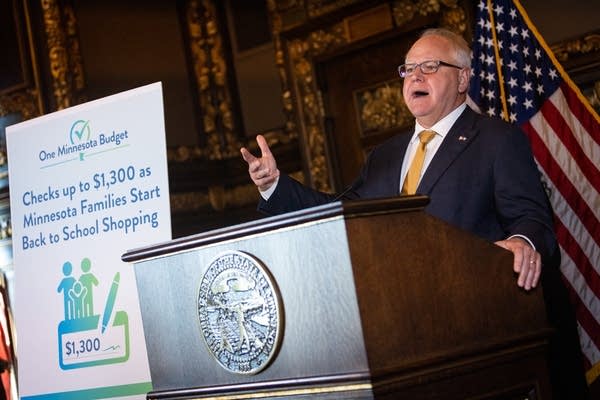Minnesota officials overshot tax rebate estimate by $144M

Gov. Tim Walz announces details of the rebate program providing up to $1,300 for Minnesota families during a press conference at the State Capitol in St. Paul on Aug. 16.
Ben Hovland | MPR News
Go Deeper.
Create an account or log in to save stories.
Like this?
Thanks for liking this story! We have added it to a list of your favorite stories.


